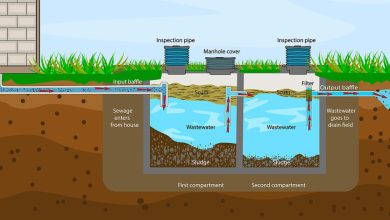Understanding Inverter AC, its Functions, and its Pros and Cons

When you think of buying an AC, the process might seem exciting and fun. However, selecting an efficient AC requires you to have in-depth knowledge of its function so that you can understand the specifications properly. Merely selecting any product from a good brand will not not suit your purpose because the features of each AC are different, and their power consumption also varies.
Today inverter air conditioners are widely preferred by people throughout the world. However, before selecting an inverter AC, you must be aware of its functions, benefits, and limitations to make an intelligent purchase. This blog provides all the information that will help you choose the best AC for your home.
What is an Inverter AC?
Earlier ACs were considered a luxury item. However, the increasing temperature of the surrounding area led to an increase in the demand for AC. To meet this demand, manufacturers developed highly efficient air conditioners.
Inverter AC is one such invention that aims at providing excellent cooling at low power consumption. The inverters of these ACs adjust the speed for enhanced compressor control.
When you switch on the inverter AC, it initially consumes high power to rotate the compressor at high speed. Further, when it reaches the maximum capacity, the rotational speed reduces to provide optimum cooling. Therefore, people don’t need to wait longer to achieve the desired temperature throughout the room.
Difference Between Non-Inverter and Inverter AC
The compressor in an AC manages the cooling operation. However, it functions differently in an inverter and a non-inverter AC. The following section explains their difference:
Inverter AC
The rotation of the compressor starts at high speed. Therefore it initially requires a high power supply. However, as it reaches the desired temperature, the RMP automatically reduces to maintain the temperature throughout the room.
With this AC, you won’t feel uncomfortable because the compressor never stops rotation. This way, the initial high rotation and power requirement is later optimised, resulting in low power consumption. If you have a 250 sq. ft area, a 1.5 ton 4 star inverter AC will be best for providing effective cooling.
Non-inverter AC
ACs with this technology gradually increase the compressor rotational speed to reach a set temperature. However, as it hits that degree, the compressor stops. This results in an increase in the room’s temperature, which again starts the compressor to provide cooling. The repeated auto-start of the compressor results in huge power consumption and also causes discomfort to people.
Pros of an Inverter AC
If you choose an inverter AC for your home, you get the following benefits:
● The compressor of this technology speeds up and slows down to maintain an optimum temperature. This makes it the appropriate choice for people who want to reduce their electricity bills while living in a comfortable room temperature.
● Since it uses low power for operation, the compressors cause minimum sound and vibration. Moreover, it gradually increases its speed according to the room temperature. Therefore, instead of sudden loud noise, you will experience a slow sound similar to someone’s humming. This way, it does not cause any disturbance to the people in the room.
● Buying an inverter air conditioner online for your home or office is a smart investment. Although it is more expensive than other non-inverter technology ACs, its increased durability, improved functionality, and flexibility make it more efficient. Moreover, the reduced power consumption quickly balances its price.
● The faster cooling technology of this AC is one of the most prominent benefits. It steadily increases the capacity to offer a great cooling experience to the residents.
Cons of an Inverter Air Conditioner
Like any other electrical appliance, inverter AC also comes with a few limitations. They are:
● It is more expensive than a regular inverter AC. Moreover, it requires a professional’s expertise for appropriate installation, which further increases the cost. However, when you weigh it on the benefits it offers, its cost seems to be reasonable.
● Another drawback of this appliance is that it requires expert handling for maintenance. Since it is a new technology, only skilled professionals can understand its structure and functions for repairing purposes.
Conclusion
We hope the points mentioned above will help you choose the best AC. However, to make the best purchase, it is crucial to determine the area of your room where you will install the AC and accordingly select an aircon of appropriate capacity.


